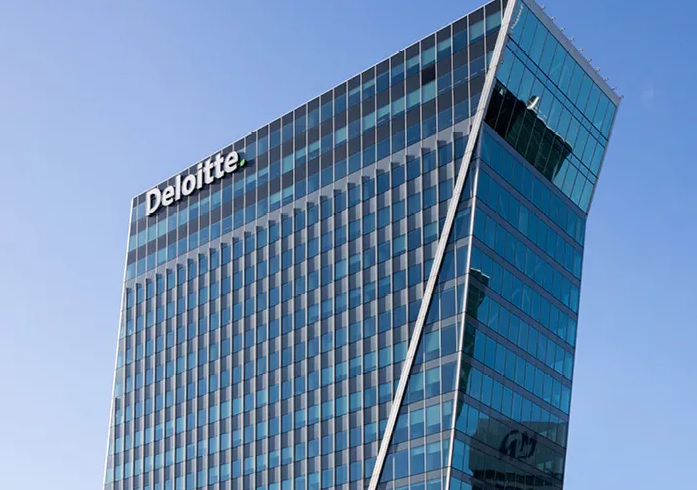Companies Ramping Sustainability Reporting Investments as Regulatory Deadlines Approach: Deloitte Survey


Executives at large U.S. companies are rapidly increasing sustainability reporting efforts, with nearly all actively investing in ESGEnvironmental, social, and governance (ESG) criteria are a set of standards for a company’s operations that socially conscious investors use to screen potential investments. More data and reporting technology and assigning new ESG-focused roles internally, to meet rising stakeholder demand and approaching regulatory requirements, according to a new survey released by global professional services firm Deloitte.
For its new “Sustainability Action Report,” Deloitte commissioned an online survey of 300 senior finance, accounting, sustainability, and legal executives, and conducted interviews, at publicly owned companies with revenues greater than $500 million, across sectors including consumer products, financial services, life sciences and health care, oil and gas, and technology, media and telecommunications.
The report indicated a marked recent increase in momentum on implementing sustainability strategies and ramping ESGEnvironmental, social, and governance (ESG) criteria are a set of standards for a company’s operations that socially conscious investors use to screen potential investments. More reporting initiatives over a similar survey conducted by Deloitte earlier this year. Notable, the U.S. Securities and Exchange Commission (SEC) released its proposals for climate disclosures for public companies shortly after the release of the earlier survey.
The growing focus on ESGEnvironmental, social, and governance (ESG) criteria are a set of standards for a company’s operations that socially conscious investors use to screen potential investments. More encompasses investments in capabilities as well as human capital. The survey found that well over half (57%) of companies have already implemented a cross-functional working group tasked with driving strategic attention to ESGEnvironmental, social, and governance (ESG) criteria are a set of standards for a company’s operations that socially conscious investors use to screen potential investments. More, with nearly all others (42%) planning to follow suit, compared to the earlier survey findings with only 21% having implemented such a working group.
Similarly, in order to address ESGEnvironmental, social, and governance (ESG) criteria are a set of standards for a company’s operations that socially conscious investors use to screen potential investments. More data and reporting needs, virtually all (99%) respondents said that they were somewhat or very likely to invest in more disclosure-focused technology and tools in the next 12 months, and more than 80% reported that their companies have new roles or responsibilities to prepare for increased disclosure requirements.
The survey also found a significant increase in plans to seek external assurance for ESGEnvironmental, social, and governance (ESG) criteria are a set of standards for a company’s operations that socially conscious investors use to screen potential investments. More disclosures, with 96% planning to do so over the next reporting cycle, compared to approximately three quarters in the prior study.
The study indicated that executives anticipate benefits from enhanced ESGEnvironmental, social, and governance (ESG) criteria are a set of standards for a company’s operations that socially conscious investors use to screen potential investments. More reporting, beyond just meeting regulatory requirements. More than half of respondents expect tangible benefits including increased employee retention (52%) and improved ROI (52%), alongside intangible benefits such as stronger stakeholder trust (51%). Other key benefits included elevated brand reputation (49%) and risk reduction (48%).
Commenting on the survey results, Jon Raphael, National Managing Partner, Sustainability, Transformation and Assurance at Deloitte & Touche LLP, said:
“Sustainability, integrated with business strategy, is about unlocking value for a company and its stakeholders, as well as creating a sustainable future, where people and the planet prosper together.”
Click here to access the survey results.
While the report found enhanced preparedness and planning for enhanced sustainability disclosure, it also examined the ESGEnvironmental, social, and governance (ESG) criteria are a set of standards for a company’s operations that socially conscious investors use to screen potential investments. More data challenges faced by executives in this area. 35% of respondents listed quality as their top data concern, followed by access to ESGEnvironmental, social, and governance (ESG) criteria are a set of standards for a company’s operations that socially conscious investors use to screen potential investments. More data at 25%.
Scope 3 emissions data appears to be a top concern, with only 37% currently prepared to disclose on Scope 3, compared to 61% on Scope 1 and 76% on Scope 2. These results did indicate some improvement over the prior survey, which found 31% prepared on Scope 3, 56% on Scope 1 and 47% on Scope 2. Top Scope 3 challenges reported by respondents included the quality of data from external vendors at 51% and a lack of data availability at 41%.
Kristen Sullivan, US Sustainability and ESGEnvironmental, social, and governance (ESG) criteria are a set of standards for a company’s operations that socially conscious investors use to screen potential investments. More Services Leader and Global Audit & Assurance Climate Services Leader, Deloitte & Touche LLP, said:
“Stakeholders increasingly expect a company’s business strategy to align with its climate and equity commitments. While companies are at various stages on their sustainability journey, they must drive accountability today for a sustainable tomorrow.”
The post Companies Ramping Sustainability Reporting Investments as Regulatory Deadlines Approach: Deloitte Survey appeared first on ESG Today.